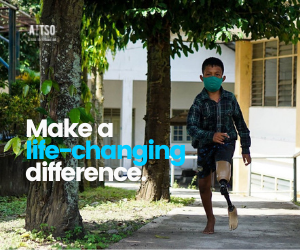Is Top Down Or Bottom Up The Solution To Sustainable Consumerism
Partner Content provided by WM Nexus
The UN Sustainable Development Goal 12 aims to ensure sustainable consumption and production patterns, but how easy are those patterns to achieve in practice?
The challenge was debated at the WM Nexus Impact Investing Forum in London recently by Yodaly Sierra-Rubio, founder Eco2wallet.com and a lecturer on energy finance at the University of London, Peter Jäderberg, founder and CEO, JC Impact Invest and a Elle L, music artist, environmentalist, regenerative brand consultant and ambassador.
What are we trying to achieve?
First the panellists grappled with what such a change would mean even for capitalism itself.
Sierra-Rubio said: “Traditional capitalism is about getting a commodity transformed, to use it as a resource and exchange it for money. The questions are how can we embed sustainability into that equation? And how can we make it easy for anyone to understand sustainability, in terms of money in their pockets, how to use it responsibly?”
Sierra-Rubio said the UN is aware that it cannot impose a restriction on ways of living, especially because the very first SDG is to end poverty, effectively a capitalistic SDG. Goal 12 is the financial relationship towards capitalism.
“At no point are they telling you spend less; they're telling you spend smarter.”
Jäderberg expressed some frustration with the current terms of the debate – even with recasting capitalism as impact, sustainable, integral.
“My conclusion is you should identify the problem, but don't talk too much about it. Let's spend energy on a solution or solutions.”
Elle L said that she is concerned that we're not regulating the word sustainability at all. “That for me is a real cause for concern because misinformation drives us in absolutely the wrong direction. Consumer information is empowering. But the wrong information, of which there's a lot out there, is dangerous.”
Fashion as a study in good and bad
Elle L said: “The reason why we talk about production and consumption in the same breath is because they're so closely linked. We’re producing more because there is demand but we're demanding the wrong thing and too much of it, and there's so much waste.”
She said her focus was on regenerative fashion, but the flip side was fast fashion, booming at an alarming rate, incredibly polluting and driven by online demand and online modeling.
Indeed, a lot more business had been driven online during the pandemic. The conundrum was there was also eco-anxiety. The question was whether the latter could be addressed.
“We need to move to quality timeless purchases and looking at business models that give back to the environment. We need transparency to be empowered with our purchase decisions, but we also need to take the lead here, because it is a conversation that affects every single one of us.”
Are the SDGs the right approach?
Jäderberg felt all 17 SDGs are “too vague and take the wrong perspective,” with too much focus on the human perspective though SDG 17 partnerships for goals involving collaboration and trust was arguably the most important.
Sierra-Rubio added: “I think the end goal is how to create good practices, acknowledging that we're still going to consume resources and not forcing people into mandatory carbon or resource diets.
“I agree that the SDGs are human centric. But if you think about it, the ones that are having to make a decision about the resources of the Earth are the humans.”
What other solutions might drive change?
Her focus is giving people tools for responsible consumption, but the challenges are obvious including willingness to help the environment but much more reluctance to pay for the tools to do so.
So, for example, for the Eco2wallet.com, she said they were providing new visibility in terms of purchases – a tenner payment on Uber meaning three trees chopped down but – bought on the card – at least one tree planted.
“People will have the option of making a decision in terms of responsible consumption on a tool where they don't have to pay extra.”
Sierra-Rubio also noted the creation of an Open Payment System scheme intended to be an open source of carbon calculations for consumption, a sort of wikipedia for carbon though she also noted a lack of collaboration from manufacturers and financial institutions were hinderances.
“The whole idea is anyone should be able to understand not only their financial expenditure, but also you should have the tools in an open source scheme that help you to make a decision.”
She added that one of the current barriers is that the system is mostly private and for corporations.
She suggested carbon taxes and a carbon trading schemes had actual prices that seemed far away from the reality of the consumption.
Jäderberg was also concerned that a focus on carbon sequestration and storage is misleading. Carbon makes up only 4% of the whole natural world impact. Biodiversity is more like 55%. “There are no biodiversity credits and there should be.”
He did discuss an investment not yet brought to market - a system where the consumer can go into any supermarket in the world and ask “Should I buy tomato A or tomato B? What is the sustainable footprint, the nutritional content?” And the answer is open sourced, grass roots driven and embedded in the blockchain so it can never be corrupted.
He added that he felt it was a challenge to get people to understand that mindful purchasing makes sense, and he’s worried about governments and corporates being morally corrupt and younger people deciding that ethics don’t pay.
Elle L added: “I agree, how you make people care is a really fundamental issue. There are a lot of people that are concerned about affordability and feel excluded from this conversation, or have zero awareness and so therefore think they're making better decisions when they are not.
“How do you make people care? With sustainability, I try to use the term regenerative because we need to think about regeneration on land and sea really, then we're really moving in the right direction.”
She added that she felt that there was a fantastic opportunity to bring the interconnection between nature and purchasing power into everyday decision-making.
“If we could use something like Instagram, which harnesses and accentuates popularity, we could look at moving bigger business ideas to incentivise and reward good behaviors. But I just don't think we're there yet.”
Jäderberg, answering a question about what investors can do discussed one of this major concerns – that most money going into sustainable finance goes to secondary markets, which he feels does not have a material impact. However he feels a lot can be done if people are willing to face reality, awareness and ethics. Young people that truly want to change the world need to look at where their money goes. Does this money actually add something in reality, is there additionality?
The next question is what is the efficiency - “How much of your money is creating something new that really helps the world”.
In comparison he says a sustainable stock might add 0.5 or 1 per cent, which does leave him rather scornful of politicians, regulators and even the taxonomy.
“We shouldn't rely on politicians or government. It's the grassroot movement of everyone, we are all responsible for this, this earth, we are always wanting for our family, for our friends for selves. And we can't put that on somebody else.”
According to Elle L, “Incentivising consumers may not seem the best solution, because why should we have to incentivise individuals to make good decisions, but I think it can really help shape identity in collaborations, community and awareness.”
Sierra-Rubio said she was opposed to concepts such as carbon diets but actually carbon shaming might work including financial carbon shaming where you translate the CO2 into a monetary value.
“The easiest way to reach out to the people is transforming CO2 into money. Try to make it relatable and personalize it. One of the easiest way is to do so is through tokenization, so people can actually trace their own personal expenditure with a monetary value of their expenditure over a set time period. I think this is going to be mainstream in 10 years-time.”
Elle L added: “It’s an evolving topic. It's multifaceted. And I think that that's why you do need the information to shape those decisions. But you need great marketing techniques and you need a financially sustainable business. I've seen so many great businesses with great intentions but they fail at the fundamentals, which is to make money, because they lack expert help at the senior level.
© The Sortino Group Ltd
All Rights Reserved. No part of this publication may be reproduced, stored in a retrieval system or transmitted in any form or by any means, electronic, mechanical, photocopying, recording or scanning or otherwise, except under the terms of the Copyright, Designs and Patents Act 1988 or under the terms of a licence issued by the Copyright Licensing Agency or other Reprographic Rights Organisation, without the written permission of the publisher. For more information about reprints from AlphaWeek, click here.







